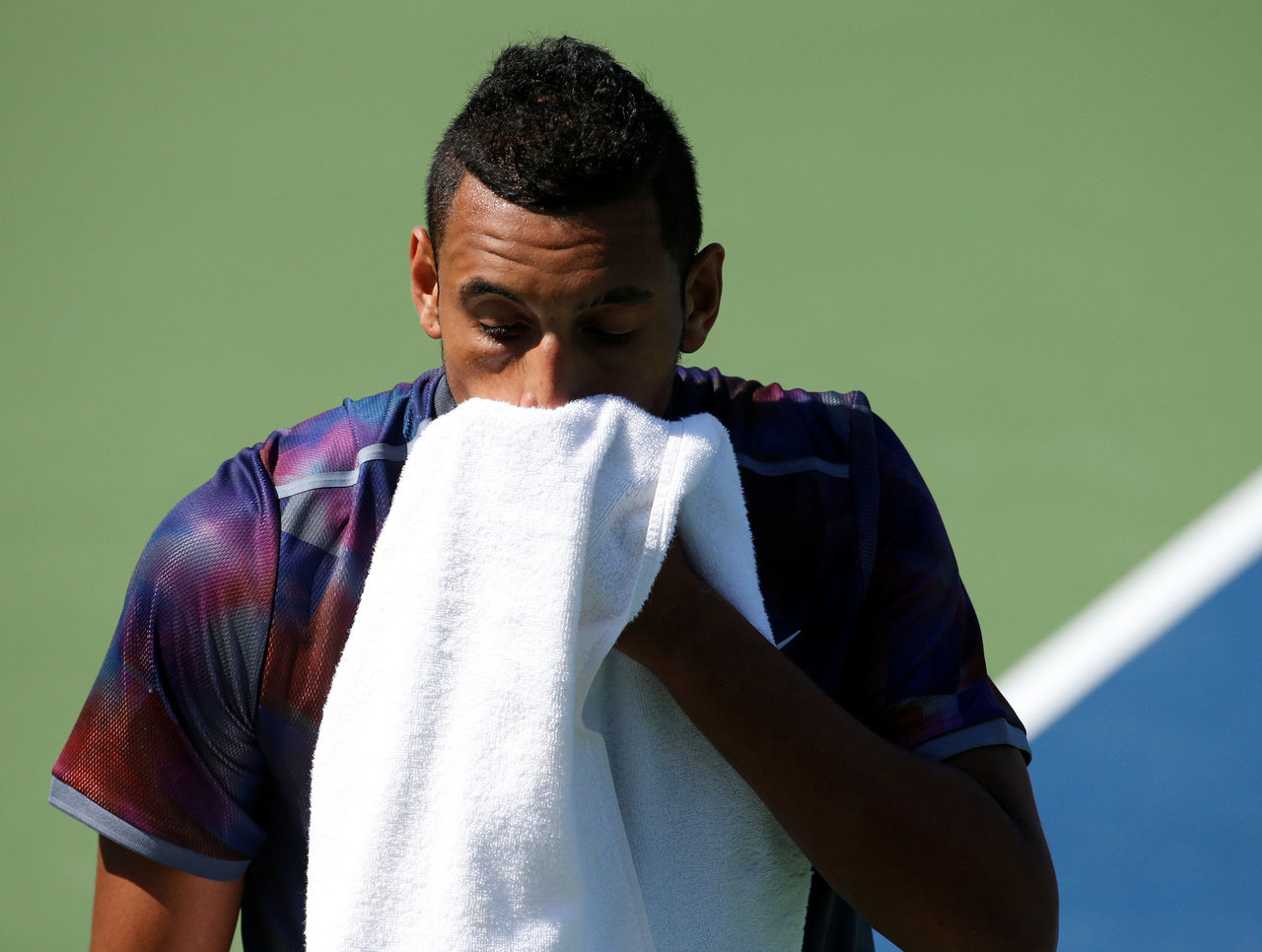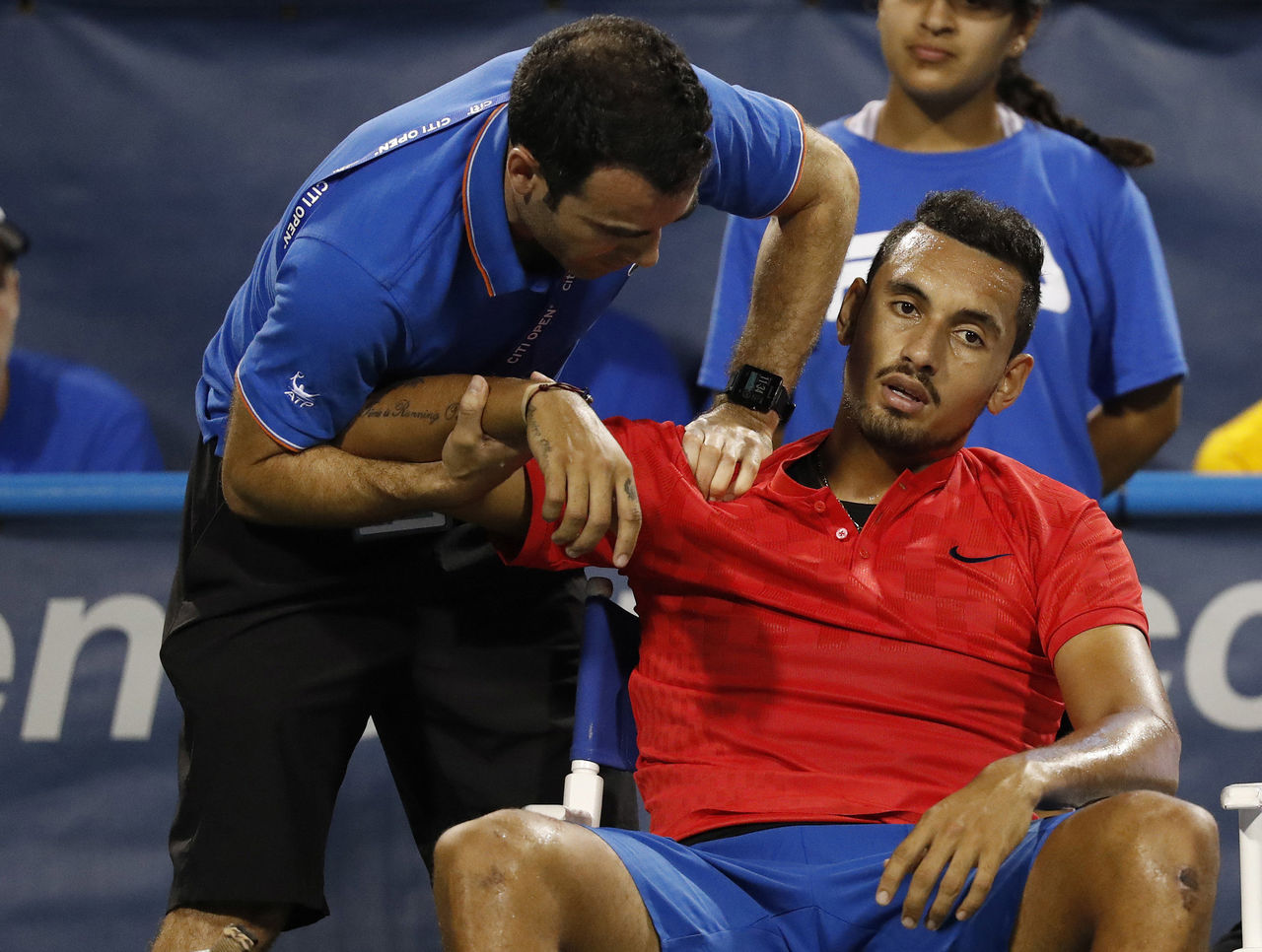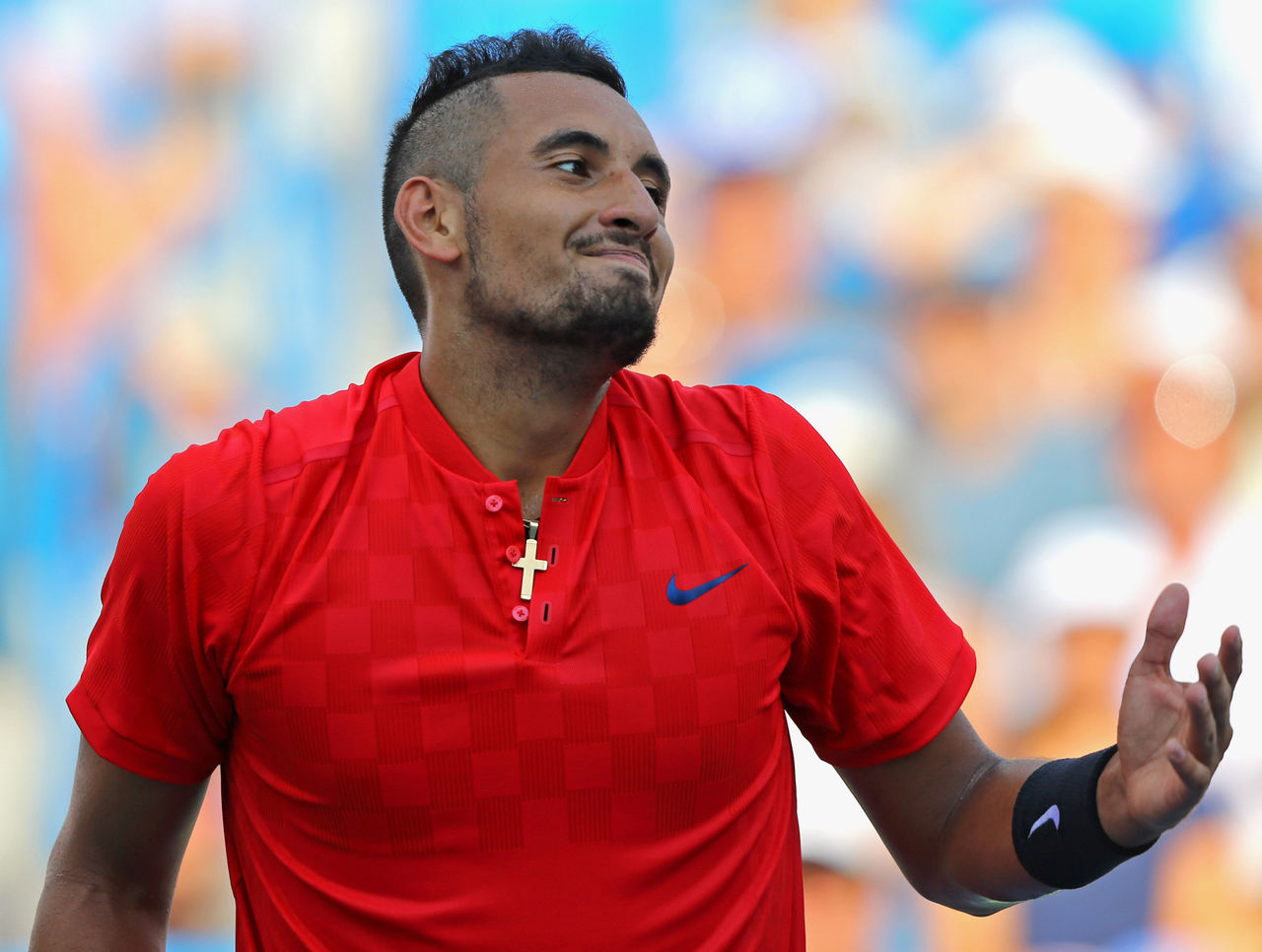Nick Kyrgios, and the stigma of unrealized potential
The wise among us surely knew enough not to get roped into this trap, but the willfully naive couldn't help ourselves: It really, really felt like Nick Kyrgios had a chance to do something special at this US Open.
He had an enviably plush first-week draw, his path to the Round of 16 free of any significant obstacle save for himself. His potential fourth-round opponent, Roger Federer, had looked well south of 100 percent in his first-round squeaker over Frances Tiafoe, plus Kyrgios nearly toppled a healthy Federer in Miami, after beating him in their first (and only other) meeting back in 2015. Kyrgios was coming off the best result of his career, a finals run in Cincinnati that included a straight-sets drubbing of Rafa Nadal. Five of the top-11 ranked men's players had withdrawn from Flushing Meadows. Opportunity was raw-knuckled from the knocking.
By now you know how much good all that did Kyrgios. The combustible Aussie crashed out of New York in the first round Wednesday, losing in four tumultuous sets to 235th-ranked countryman John Millman, who came in with one tour-level match win to his name in 2017.
The match had all the hallmarks of a Kyrgios flameout: an injury that derailed him in the third set, an audible-obscenity code violation, a dust-up with the chair umpire, a stretching session with a ball boy, a heart-to-heart with the trainer, an obliterated racket, and just enough holy-crap shot-making to remind you why his early exit is such a bummer. It created that all-too-familiar dissonance between his obvious talent and his utter lack of physical preparedness, his hypothetical possibilities and his inescapable present reality.

Kyrgios has always done enough to make you believe he can bring the goods when circumstances call for it. He is 5-3 against the trio of Federer, Nadal, and Novak Djokovic, a record he chalks up solely to his own compete level.
"It's easy to get up for these matches," he said after beating Nadal in Cincinnati. "You know, the problem for me is trying to bring it on an everyday basis - say, center court of Lyon with, like, 15 people against Nicolas Kicker earlier this year. I lost. Tonight I'm playing Rafa, and I win. These matches aren't the problem. It's those matches for me."
It was easy to hear that and assume Kyrgios would be keyed up for the US Open, even in the first round on an outer court. He'd just made his first Masters final, and here was a Slam as wide open as any in recent memory. When underachievers finally show glimpses of the potential others have seen in them, it's common to assume they've changed something - switched up their routine, unlocked some subtle new tactic, learned something about themselves - that will produce more of the same on a regular basis. It is confirmation bias of the first order. And in case the outcome of his match hadn't done enough to disabuse everyone of that notion, Kyrgios made a point of doing so in his post-match presser.
"I'm not dedicated to the game at all," he said. "There's players out there that are more dedicated, that want to get better, that strive to get better every day. I'm not that guy. ...
"I wasn't doing anything different in Cincinnati. I was probably less dedicated than I was this week. I was playing basketball every day for two hours. I played an hour of basketball before I played David Ferrer in the semifinal. I was going to get ice cream, getting a milkshake like every day. And then this week I'm dedicated, and my shoulder starts hurting, so I don't know."
Of course, spending a few days being slightly more dedicated than "not dedicated at all" should not and does not guarantee anything. It's all part of the same process, and for Kyrgios that process has included training for 15 minutes a day or less, and trying to "find a balance between Pokemon and training."
Asked whether he ever sees himself becoming one of those committed players he referenced, he was typically candid: "Probably not, honestly."

This is nothing we haven't heard from Kyrgios before, and we'll surely hear it again. The questions will continue to be asked, and his ability will continue to be held against him as long as he appears to take it for granted.
Part of what makes pro sport so magnetic is that it provides such a tangible manifestation of individual progress, and the fulfillment (or failure thereto) of human potential. In the case of the latter, it can also tempt those of us on the outside to indulge a false sense of sanctimony; a sense that gifted athletes owe success not only to themselves but to the ordinary folk who'd do anything to have what they have; a sense that talent is wasted on the talented.
It's a little odd, though, that underachievement can induce so much hand-wringing when there is a truth universally acknowledged that humans are born underachievers. The fact that we can't access the full breadth of our brain power, that we'll inevitably fail to live up to our own hopes or expectations for ourselves - because of the inherent limits of human physicality, or goodness, or clarity of purpose - is a lesson most of us absorb in relatively short order.
But public underachievers like Kyrgios exist on a different plane. In their constant visibility, they become projection systems, vessels into which others can pour their own dreams and disappointments. Perhaps Kyrgios just throws into too-stark relief the reality that we are not created equal; that we don't all get the lives we want, or expect, or believe ourselves worthy of; that most dreams don't come true; and that potential will go unrealized more often than not. Watching him slap effortless winners one second and tank points the next can feel like an exercise in existential despair, a reminder of life's boundless capacity for human waste.

Kyrgios is also the 17th-ranked tennis player in the world, and let's be clear: nobody is born to be the world's 17th-best anything. For whatever natural ability he is lucky enough to possess, he's still had to devote his life to tennis, make requisite sacrifices, and shunt aside other potential pursuits. He could wring more out of his talent if he wanted to, but his choices, goals, desires, and demons are his own, and no one can make him want for himself what they want for him.
That includes the ATP, which suspended Kyrgios for the final eight weeks of last season for tanking a match, then reduced the ban to three weeks in exchange for his pledge to see a sports psychologist. His whole career, it seems, people have been trying to tell Kyrgios what's best for him.
"I don't know," he said Wednesday, when asked if he wants to want it more. "I keep letting people down, so I don't know."
It may be difficult to stomach the idea of Kyrgios' preternatural kinetic power producing perpetually spotty results and only sporadic success, but there's also far more to his job than the physical potential and sheer coiled energy that make him such a tantalizing could-be. If Kyrgios lacks the desire, disposition, or work ethic to become a top-five player or Grand Slam champ - as everyone and their uncle seems to feel he should - then maybe he doesn't actually have it in him to do so.
Maybe one day he'll realize he wants this, and he'll put in the necessary work. Maybe he won't, but will look back one day, think about what he could’ve accomplished, and regret not putting more of himself into it. Maybe he was always destined to be just this: An oft-electrifying, oft-maddening player who can make the remarkable look routine and the routine look like a total drag. Maybe that's enough for him. Maybe it should be enough for us.